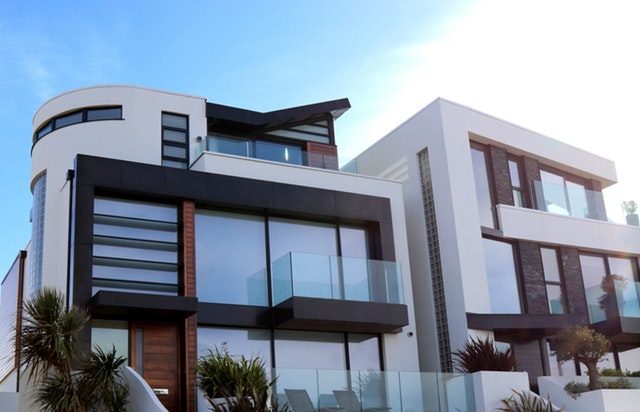New FHA Financing Available For Condo Buyers That Has A Low Down Payment
 Condominium owners and buyers have previously been at a disadvantage when trying to use the Federal Housing Authority (FHA) support to get a home mortgage. Single-family homes could get better FHA mortgage deals than condominiums. In October 2019, this changes.
Condominium owners and buyers have previously been at a disadvantage when trying to use the Federal Housing Authority (FHA) support to get a home mortgage. Single-family homes could get better FHA mortgage deals than condominiums. In October 2019, this changes.
New FHA Condominium Financing
As of October 15, 2019, FHA loan availability is extended to condominium buyers. This is important news for first-time buyers who frequently purchase a condominium. First-time buyers appreciate FHA loans because they only require a very modest 3.5% down payment.
FHA loans were strongly curtailed after the real estate market collapse in 2008. Since 2009, most condos did not qualify for FHA loans. The problem was that FHA loans require mortgage insurance and this insurance was only available for about 6.5% of all condos.
In America, there are about 160,000 condominium projects (complexes and buildings). The new FHA program makes mortgage insurance possible for about 20,000 to 60,000 more condominium projects nationally. Not all condos will qualify for the new FHA program; however about half of them will.
Both first-time buyers and people who are down-sizing by selling a larger home appreciate condos. The median price for a condo nationally is around $260,000. This is about $29,000 less than the median price for a home that is about $289,000. Maintenance costs and upkeep for a condo are typically less than caring for a larger home.
Refinance Opportunities
For condo buyers, who could not get FHA loans in the past, they may now qualify for the mortgage insurance needed if they could not get it before. Then, they can refinance a loan to get a better deal with FHA financing if they want to do this.
Easier Condominium Sales
For those who are putting their condos on the market for sale, this new FHA loan program is worthwhile to investigate to see if the condominium building or complex qualifies. If the condo is in a facility that qualifies, this new FHA financing option will potentially attract more buyers
Summary
Real estate agents should become aware of the new FHA program and inform their clients if a condo buyer can use an FHA loan to finance the purchase. This is a very impactful change for the condominium market dynamics. This new FHA loan program is the first of its kind to occur since around 2009, a decade ago, which is great news for condo buyers.
Whether you are looking to buy or refinance, be sure to consult with your trusted home mortgage professional to discuss current financing options.

 For a long time after the real estate housing crisis in 2008, buyers with a poor credit history had a difficult time finding mortgage financing. It was a problem that trapped those seeking to buy a home because so many lost their homes from the inability to pay their mortgages.
For a long time after the real estate housing crisis in 2008, buyers with a poor credit history had a difficult time finding mortgage financing. It was a problem that trapped those seeking to buy a home because so many lost their homes from the inability to pay their mortgages. Saving up for a down payment can feel overwhelming. Most people have never saved up the kind of money it takes for a down payment. It can be done, though. The goal is to put 20% down on a house. This is what it takes if you don’t want to have to pay private mortgage insurance every month.
Saving up for a down payment can feel overwhelming. Most people have never saved up the kind of money it takes for a down payment. It can be done, though. The goal is to put 20% down on a house. This is what it takes if you don’t want to have to pay private mortgage insurance every month. Recent medical school graduates, saddled by high student loan debt, sometimes have a hard time qualifying for a first mortgage. Now, however, a growing number of lenders will consider future earnings potential of high earners in the medical profession as a way to offset high debt ratios. But specialty mortgages for young physicians aren’t the only unique loans available today.
Recent medical school graduates, saddled by high student loan debt, sometimes have a hard time qualifying for a first mortgage. Now, however, a growing number of lenders will consider future earnings potential of high earners in the medical profession as a way to offset high debt ratios. But specialty mortgages for young physicians aren’t the only unique loans available today.